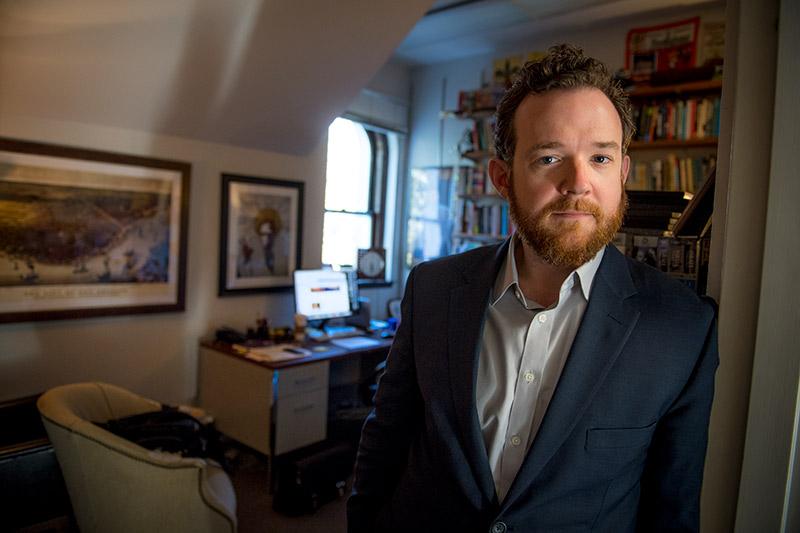Can human rights law curb violence in America?
Notwithstanding incessant news coverage of violence around the world, Geoff Dancy, an assistant professor of political science in the Tulane School of Liberal Arts, says the world is actually becoming a less violent place. One reason, Dancy says, is the spread of human rights laws and ideals.
“We’re being fooled in the U.S. to think that human rights law doesn’t contribute to a decrease in violence and that it has little to offer the world,” said Dancy of the international laws drafted by a consortium of many countries. He blames “fearmongers and bad news stories” for the widespread belief that chaos reigns at home and abroad.
Dancy's research relies on trends in violence abroad to evaluate the success of human rights law internationally. His findings show that, compared to the recent past, there are fewer incidents of war, massacres and shootings by police in many countries of the world.
Unfortunately, all these positive changes happening around the world do not extend to the United States. In fact, gun violence in this country is getting worse, as are police killings. One reason, Dancy suggests, is the American legal community often considers human rights protections to be inapplicable here.
According to global human rights organization Amnesty International, “international law only allows police officers to use lethal force as a last resort in order to protect themselves or others from death or serious injury.” But “all 50 states and Washington DC fail to comply with international law and standards on the use of lethal force by law enforcement officers.”
Using the Black Lives Matter movement as an example, Dancy thinks police officers would shoot less if human rights laws were in place to hold them accountable.
As a second example of why human rights law matters domestically, Dancy refers to the U.S. torture program that took place in the early 2000s.
“There was a massive, secretive transnational program to do forced rendition, which is where we abduct people to torture them,” said Dancy. “They were taken to places like Egypt, Uzbekistan or Guantanamo Bay to be tortured. If we cared more about human rights law, that would have been more difficult for our government to do.”
His latest study, “Rescuing Human Rights Law From International Legalism and its Critics,” published in Human Rights Quarterly, explores the role of human rights law in improving international legal obligations and domestic criminal enforcement.
“What does it mean for the world that we are totally abandoning the idea of human rights in the U.S.,” asked Dancy. “My research shows that human rights is good for the world and that our abandoning it could only be bad.”
Like this article? Keep reading: Newcomb Prison Project leads charge to 'ban the box'


